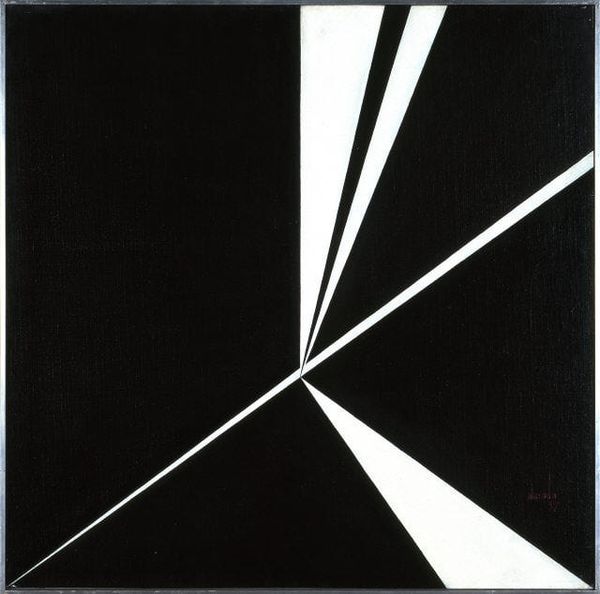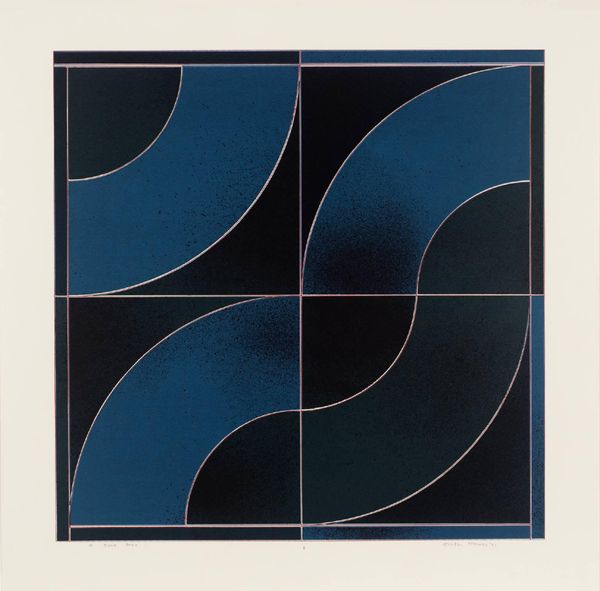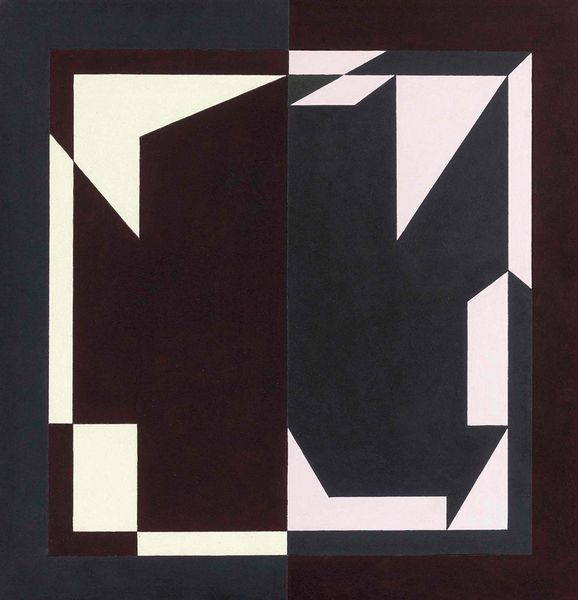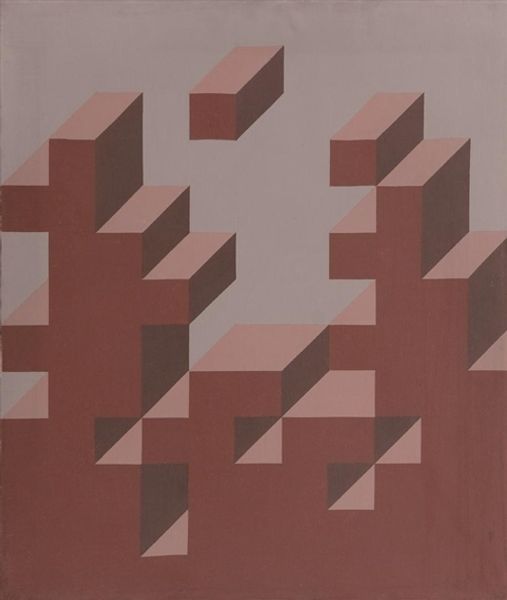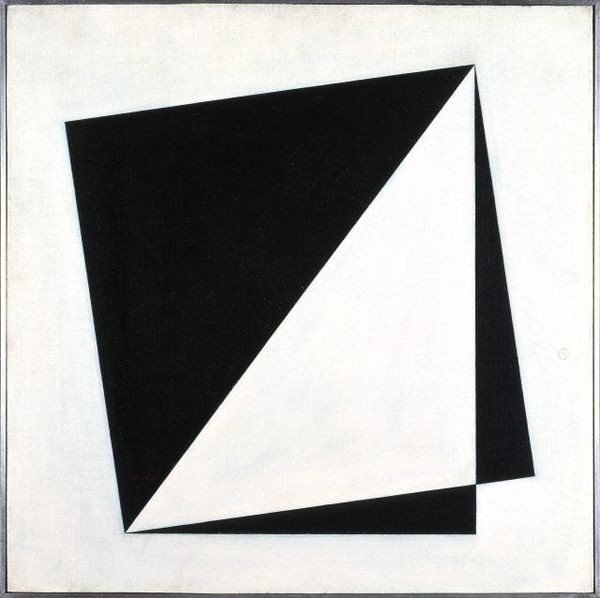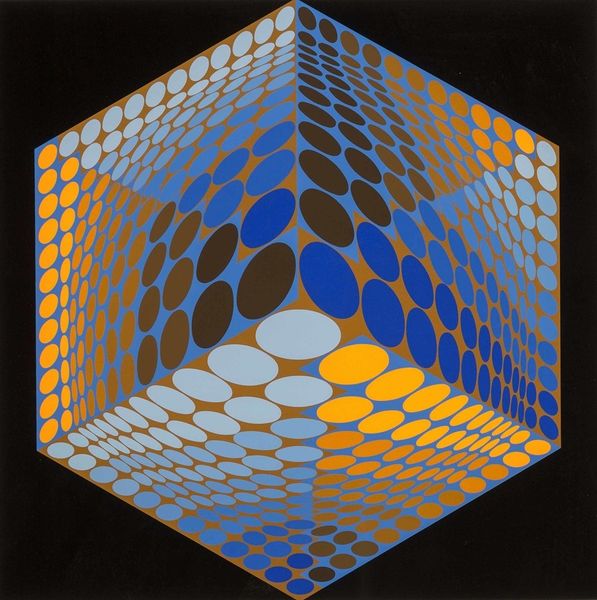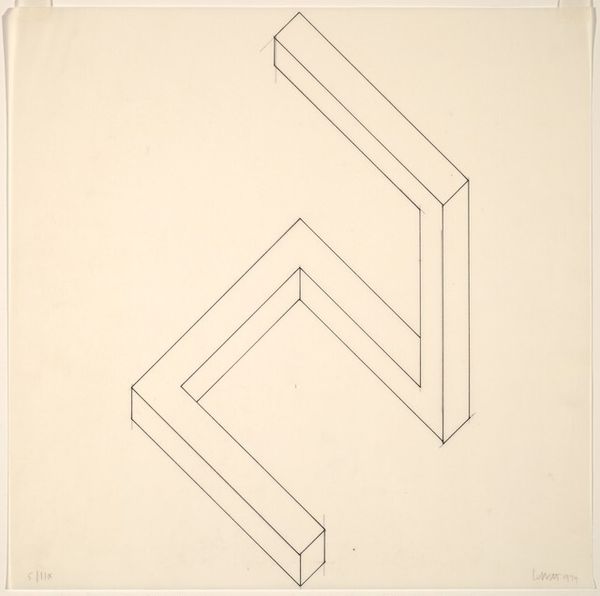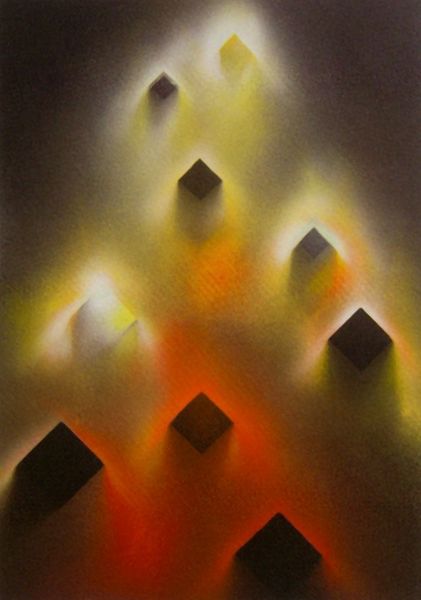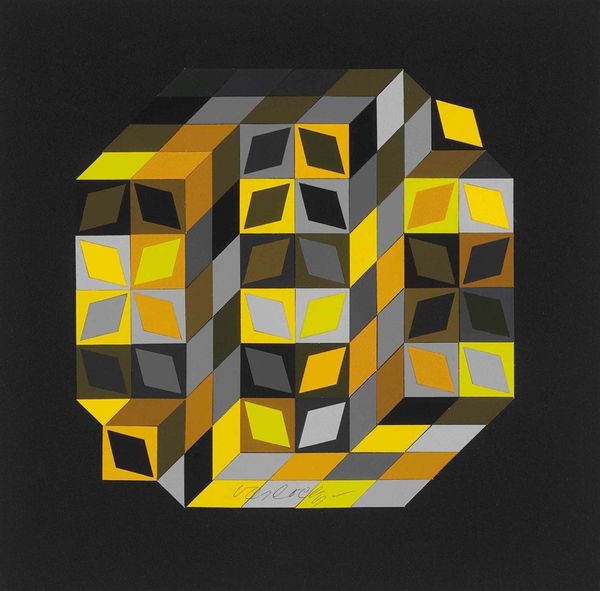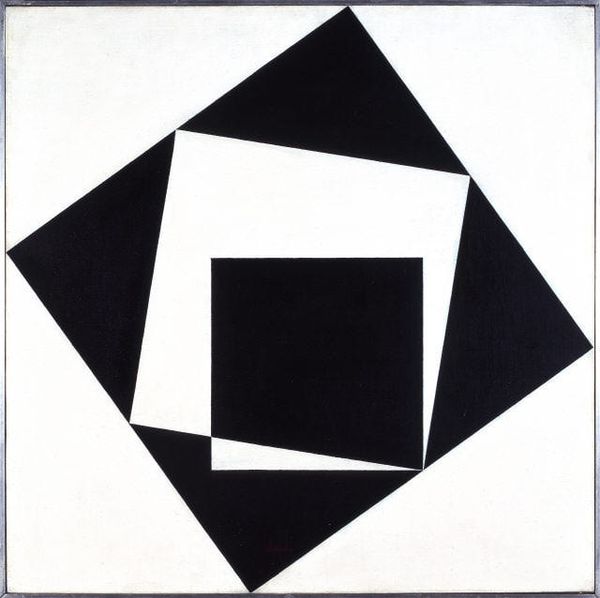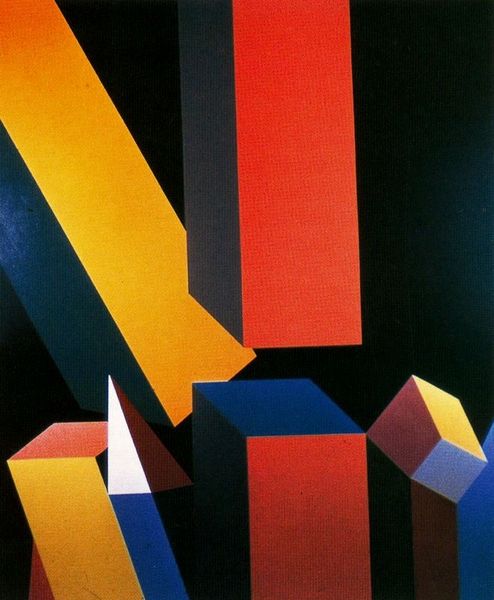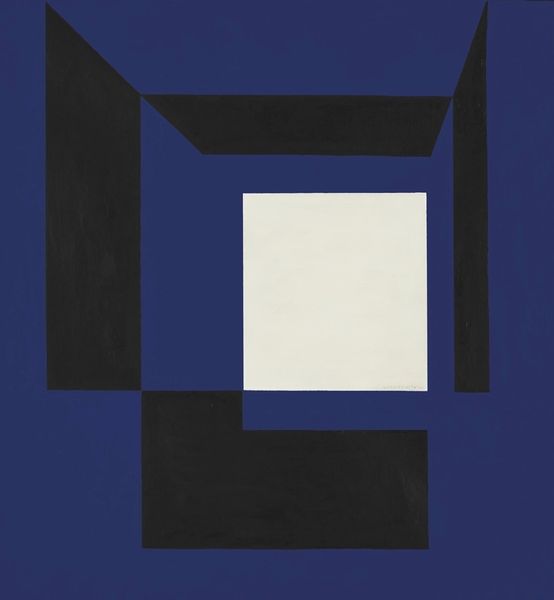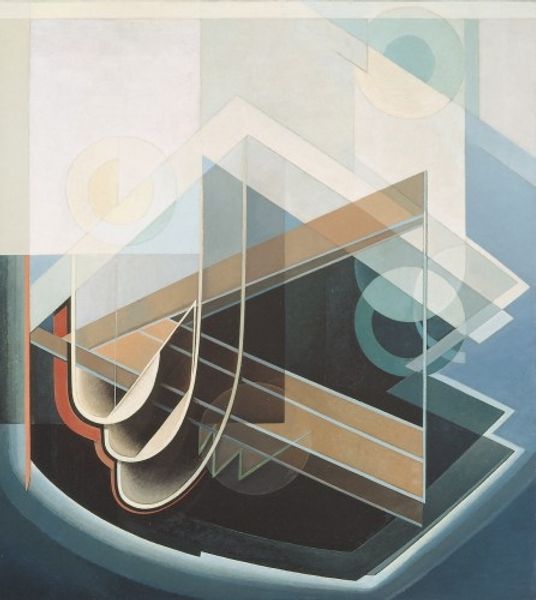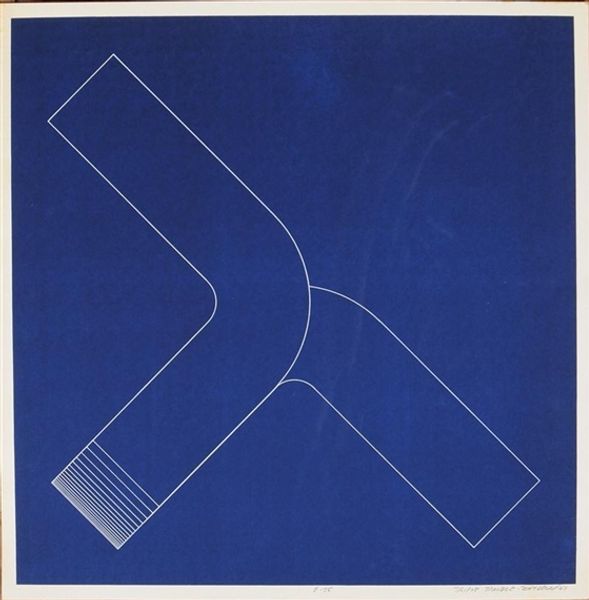
#
natural stone pattern
#
op art
#
geometric pattern
#
subtle pattern
#
abstract pattern
#
minimal pattern
#
layered pattern
#
geometric form
#
combined pattern
#
geometric figure
Copyright: Julio Le Parc,Fair Use
Curator: Before us, we have Julio Le Parc's "Modulation 229," a piece that immediately draws the eye into a mesmerizing play of form. What are your initial thoughts? Editor: It’s disorienting, in a fascinating way. I keep wanting to reach out and touch it, to understand the texture and weight of this undulating form. It looks almost extruded. Curator: Indeed. The strength here lies in Le Parc’s mastery of geometric abstraction, employing a calculated arrangement of light and shadow to create the illusion of three-dimensionality on a two-dimensional surface. Editor: Which would have required careful layering of paint, building up thin layers, glazing even. I wonder about the repetitive movements required in producing this image. Is it a commentary on the automation of labor itself? Curator: The absence of overt color directs our focus to the formal elements: line, shape, and value. Observe how the carefully modulated grey scales produce this dynamic interplay between positive and negative space. Editor: Exactly, there’s an engagement with the materiality of paint and surface here, a blurring of the line between what’s painted and what seems real. And it seems to have some relationship to the op-art tradition as well, provoking sensory experience in the viewer. What tools made these edges so neat, what supports allowed Le Parc's controlled motions? Curator: Semiotically, it evokes the potential for perpetual motion and fluidity, challenging static, conventional notions of painting. It compels us to contemplate the relationships between form, perception, and the very act of seeing. Editor: Perhaps. But beyond this philosophical debate, it points towards a larger question. How do we give form to our perception of reality, given the processes, the material realities that ground and define any artistic gesture? Curator: Ultimately, it's an artwork that reveals itself slowly. Every viewing offers new layers of interpretation, reinforcing the inherent power of pure form. Editor: And that consideration of materiality opens space to consider both conceptual intent and artistic execution as acts tied intrinsically to social realities, production, and work. Food for thought!
Comments
No comments
Be the first to comment and join the conversation on the ultimate creative platform.
